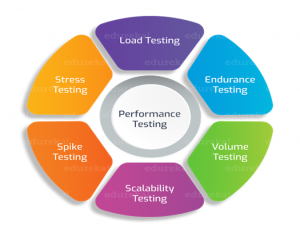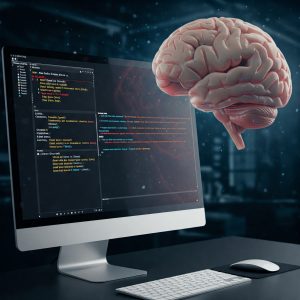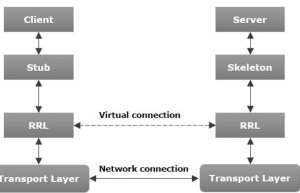Information Security Concepts Quiz
Syllabus
Course Title: Information Security (3 Cr.)
Course Code: CACS459
Year/Semester: IV/VIII
Class Load: 6 Hrs./Week (Theory: 3 Hrs., Practical: 3 Hrs.)
Course Description
The course “Information Security” introduces both theoretical and practical concepts related to computer and information security. It covers cryptographic algorithms, authentication systems, access controls, malicious software, network security, and security auditing.
Course Objectives
The primary objectives of this course are:
- To familiarize students with fundamental computer security concepts, security policies, and mechanisms.
- To enable students to design, implement, and manage secure computer systems effectively.
Course Contents
Unit I: Overview of Computer Security (4 Hrs)
- Computer Security Concepts
- Computer Security, Information Security, Network Security
- Threats, Attacks, and Assets
- Security Requirements
- Security Design Principles
- Attack Surfaces and Attack Trees
- Computer Security Strategy
Unit II: Cryptographic Algorithms (12 Hrs)
- Classical Cryptosystems: Caesar, Vigenère, Playfair, Rail Fence Ciphers
- Modern Ciphers: Block vs. Stream Ciphers, Symmetric vs. Asymmetric Ciphers
- Symmetric Encryption: Feistel Cipher Structure, Data Encryption Standard (DES), Advanced Encryption Standard (AES)
- Mathematical Concepts: Groups, Rings, Fields, Modular Arithmetic, Galois Fields, Polynomial Arithmetic
- Number Theory: Prime Numbers, Fermat’s Theorem, Primality Testing (Miller-Rabin Algorithm), Euclidean Algorithm, Extended Euclidean Algorithm, Euler’s Totient Function
- Asymmetric Encryption: Diffie-Hellman Key Exchange, RSA Algorithm
Unit III: Message Authentication and Hash Functions (6 Hrs)
- Message Authentication
- Hash Functions
- Message Digests: MD4 and MD5
- Secure Hash Algorithm: SHA-1
- HMAC
- Digital Signatures
Unit IV: User Authentication (5 Hrs)
- User Authentication Principles
- Password-Based Authentication
- Token-Based Authentication
- Biometric Authentication
- Remote User Authentication
- Two-Factor Authentication
Unit V: Access Control (5 Hrs)
- Access Control Principles
- Subjects, Objects, and Access Rights
- Access Control Matrix and Capability Lists
- Discretionary Access Control (DAC)
- Role-Based Access Control (RBAC)
- Attribute-Based Access Control (ABAC)
- Identity, Credential, and Access Management
- Trust Frameworks
Unit VI: Malicious Software and Intrusion (4 Hrs)
- Malicious Software
- Virus and Its Phases, Virus Classification
- Worms and Their Propagation Model
- Trojan Horse
- Intrusion and Intruders
- Intrusion Detection System (IDS)
- Analysis Approaches: Anomaly-Based, Signature-Based
- Honeypots
Unit VII: Network Security (5 Hrs)
- Overview of Network Security
- Email Security: S/MIME, Pretty Good Privacy (PGP)
- Secure Socket Layer (SSL) and Transport Layer Security (TLS)
- IP Security (IPSec)
- Firewalls and Their Types
Unit VIII: Security Auditing (7 Hrs)
- Security Audit
- Security Auditing Architecture
- Security Audit Trail
- Implementing Logging Functions
- Audit Trail Analysis
Laboratory Work
The practical component includes the implementation and simulation of:
- Classical ciphers such as Caesar, Playfair, and Rail Fence
- DES and AES encryption algorithms
- Primality Testing, Euclidean Algorithm, and RSA
- Hash Functions: MD5, SHA
- Authentication Systems: Password-based, CAPTCHA, Two-Factor Authentication
- Role-Based Access Control
- Malicious Software Analysis
Teaching Methods
The course will employ various teaching methodologies, including:
- Classroom lectures
- Laboratory activities
- Group discussions
- Student presentations
- Case studies
The instructor may choose any programming language for laboratory work based on students’ proficiency and comfort level.
Evaluation Criteria
Assessment will be based on:
- Theory examinations
- Practical assignments
- Case study analysis
- Group projects
- Class participation
Textbooks
- William Stallings & Lawrie Brown, Computer Security: Principles and Practice, Pearson.
- William Stallings, Cryptography and Network Security: Principles and Practice, Pearson.
Reference Books
- Mark Stamp, Information Security: Principles and Practices, Wiley.
- Matt Bishop, Introduction to Computer Security, Addison-Wesley.
- Matt Bishop, Computer Security: Art and Science, Addison-Wesley.
- Charles P. Pfleeger & Shari Lawrence Pfleeger, Security in Computing, Pearson.
This syllabus provides a comprehensive guide to understanding fundamental and advanced concepts in information security, preparing students for both academic and practical applications in the field.
Information Security syllabus Download
Informatation security notes view and download
Information Security past questions 2021 BCA TU
Information Security MCQ 2021 past questions soilutions
Information security Information Security Past Questions 2021 with Solutions




